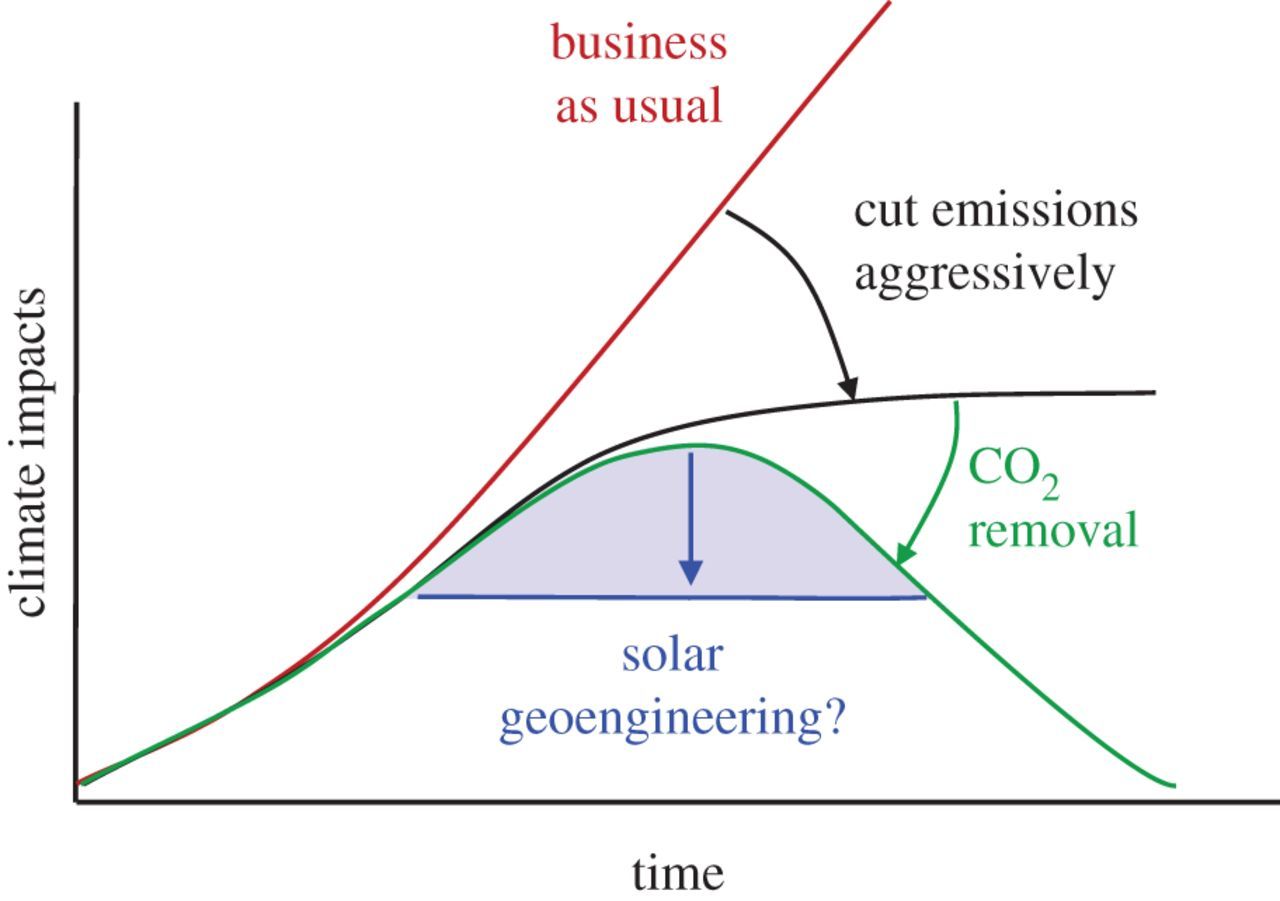A few points about solar radiation management.
Published:
Critiques of solar radiation management often make erroneous assumptions as to how scientists think about solar radiation management and how it fits with emission reductions. My view on solar radiation management was very similar to what is shown in this video until I did more research on the topic, so I would like to share a few points.
1/ Everybody agrees that the highest priority is to reduce carbon emissions. As shown during the pandemic, even extreme reductions in personal consumption do not lead to sufficient emission cuts. Achieving net zero emissions will require a complete transformation of our means of production, which takes time. Solar radiation management can be considered as a way to give us more time to complete this transformation without having to also deal with a rapidly changing climate.
2/ Climate model simulations where all greenhouse gas warming is offset by solar radiation management have a reduction in precipitation, with some regions being more affected than others. $($It also leads to residual warming in the Arctic. Why oh why?, you may wonder. Answers here: paper and talk.$)$
However, if only half the warming from greenhouse gas increase is offset, the impacts of warming on temperature, temperature extremes, water availability $($Precipitation-Evaporation$)$, and precipitation extremes are reduced almost everywhere. In climate models, halving the warming using stratospheric aerosol injection makes the climate more like the preindustrial climate for most regions of the world, when compared to scenarios where no warming is offset.
Check out Peter Irvine’s work and this Carbon Brief article, it is worth pointing out that the most recent work confirms previous results by modelling solar radiation management using aerosols and not just by “turning the sun down”.
3/ More research is being done on the potential negative side effects of solar radiation management, for example on ozone loss. Most of our confidence that solar radiation management could moderate climate impacts relies on climate simulations and observations of volcanic eruptions. A serious research effort is needed to work out all the ways it could potentially fail, if we were to actually consider it as a viable option. Obviously, as a climate researcher interested in doing that research, this is a motivated statement.
4/ Solar radiation management $($or solar geoengineering$)$ is often thought about as being used to “shave the peak” of climate impacts while we remove CO2 from the atmosphere, as shown in the figure below.

This figure $($source$)$ plots climate impacts as a function of time. Climate impacts $($such as sea level rise, heat waves, changes in precipitation…$)$ are roughly proportional to the global mean surface temperature change. If we do not manage to reach net zero emissions $($”business as usual” in red$)$, these climate impacts will rise continuously. If we cut emissions aggressively, the climate impacts will only stop growing when we reach net zero emissions, and they will stay high for as long as CO2 CONCENTRATIONS $($not emissions$)$ are high. Hence, we need CO2 removal $($green$)$ to bring climate impacts back down. However, those are slow and expensive for now. Solar radiation management, is then considered as a way to moderate the impacts of warming while we remove excess CO2 $($blue$)$.
5/ It is worth pointing out that the emission of aerosols in the troposphere $($lowest atmospheric layer where we live$)$ is already cooling the climate, though there is uncertainty as to the magnitude of this cooling. We should reduce these emissions as they have adverse impacts on human health. Hence, on top of our greenhouse gas emissions, we are already potentially cooling the climate with aerosols, though not intentionally.
6/ The default position in public discourse about how to deal with climate change is cutting emissions aggressively and dealing with the climate impacts caused by our cumulative emissions. This will likely lead to parts of the world to be uninhabitable by humans. The impact this has on people depends on our political response, and it may certainly be possible to deal with it in a humane manner if we are politically organized. However, if there is an opportunity to moderate these impacts while we pull carbon dioxide out of the atmosphere, wouldn’t it be very irresponsible to not carefully research it?

Leave a Comment